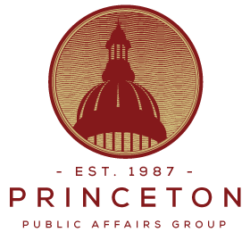August 2017
MAAC Quarterly Meeting
The MAAC held its quarterly meeting and noted the robust growth of the MLTSS program. MLTSS enrollment increased to 51,793 as of July 2017.
Under the renewal for developmental disabilities, the State has successfully transferred the Community Care Waiver (CCW) program to fee-for-service. In addition, after transferring children services from the Department of Children and Families to the Division of Developmental Disabilities, the program has managed to provide care to more than 5,000 people who were previously on a waiting list.
The MAAC also noted that enrollment of the NJ FamilyCare program increased by 11,141 individuals to bring total program enrollment to 1,773,206. Furthermore, it was noted that in-patient costs would be the highest in program history, with an estimated $313 million being dedicated to NJ FamilyCare.
Reorganization Plan No. 1 (2017)
On June 29, 2017, Governor Chris Christie issued Reorganization Plan No. 1 (2017) to transfer the functions, powers, and duties of the Department of Human Services (DHS), including the Division of Mental Health and Addiction Services (DMHAS) to the Department of Health (DOH). According to Governor Chris, the Reorganization Plan is necessary to increase efficiency, coordination and integration of the State’s mental health and addiction prevention and treatment function.
Absent legislative action, the Reorganization Plan will go into effect 60 calendar days from introduction. Currently, the Assembly has passed a Resolution 42-25 opposing the plan, while the Senate has announced its intentions to vote on the Resolution in the near future.
Governor Christie’s Statewide Drug Abuse Task Force
According to Chairman Charlie McKenna, the Governor’s Task Force on Drug Abuse Control, is likely to release its recommendations on how to address the growing opioid epidemic in New Jersey next month. Established earlier this year by Executive Order 219, the Task Force is charged with developing a comprehensive, coordinated strategy to combat the drug abuse epidemic.
The Task Force is challenged with reviewing existing statutes and regulations that impede access to care treatment and will consult with local, federal and private entities to develop solutions to the problem. According to the Governor’s Executive Order, 1,600 drug-overdose deaths were reported in New Jersey in 2015.
Legislation
S.1219/A.936 –Requires reporting of suspected abuse of institutionalized elderly to police and that facility employees receive notice of reporting requirement annually; designated as ‘Peggy’s Law.’
Signed by the Govenor on August 7, 2017.
A.320 – Establishes minimum Medicaid reimbursement rate for personal care services.
Concurred with the Governor’s Recommendations and passed by the Assembly 68-0 on July 31, 2017.
A.2503 –Provides protections for individuals with developmental disabilities; upgrades crimes committed against such individuals; and provides transparency and accountability in investigations of abuse, neglect, and exploitations of such individuals; designated as ‘Stephen Komninos’ Law.
Concurred with the Governor’s Recommendations and passed by the Assembly 68-0 on July 31, 2017.
S.2536/A.4163 –Clarifies DCA rulemaking authority over free-standing residential health care facilities, and prohibits eviction of residents from such facilities, except for good cause.
Substituted S.2563 and passed the Assembly 66-0 on July 31, 2017.
S.3400/A.5089 –Establishes minimum Medicaid reimbursement rate for private duty nursing services.
Introduced and referred to the Assembly Health and Senior Services Committee on July 13, 2017.




